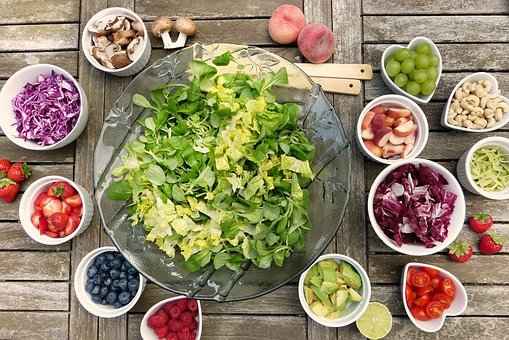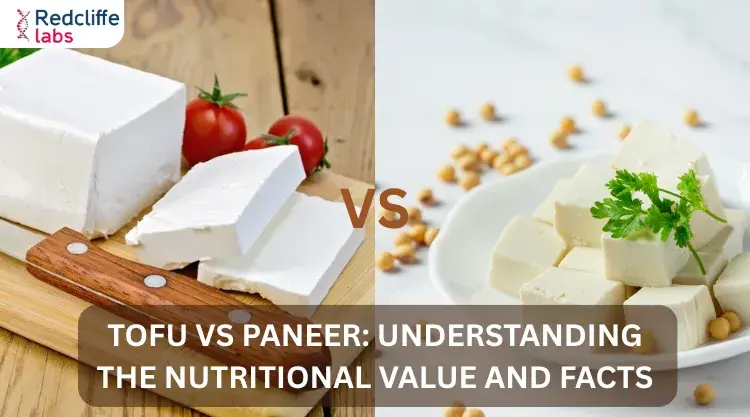Foods to Increase Platelet Count: A Natural Approach

Medically Reviewed By
Dr Divya Rohra
Written By Prekshi Garg
on Feb 28, 2022
Last Edit Made By Prekshi Garg
on Jan 10, 2025

Blood is made up of different kinds of cells namely- Red Blood Cells (RBCs), White Blood Cells (WBCs), and Platelets/ Thrombocytes. Out of these, platelets play an active role in clotting of blood, in the event of any cut or injury and are also referred to as blood-clotting cells.
Normally, our body has 1.5 lac to 4 lac platelets per microliter of blood. Low platelet count, less than 1.5 lac is called thrombocytopenia and platelet count greater than 4 lac is called thrombocytosis. In case of viral infections (dengue), bone marrow conditions (leukemia or lymphoma), chemotherapeutic medications, and more, the platelet count in the blood can significantly reduce leading to,
- Fatigue and excessive tiredness
- Easy bruising
- Bleeding of gums
- Nose bleeds
- Heavy menstrual flow in women
- Prolonged bleeding of wounds
- Blood in urine, stools
- In Severe conditions, the vomit of blood
Hence, it is important to know how to increase platelet count instantly through medications or naturally. This article dives into the natural ways of improving blood platelets in different clinical conditions. Before that, let’s understand if the COVID-19 infection can affect platelet count. If so, how?
How can COVID-19 affect platelet count?
As said earlier, viral infections can result in a dropping of platelet count. As we know, covid-19 is a severe form of viral infection, fatigue, and exhaustiveness- a sign of low platelet count was also recorded in patients with SARS-CoV2 infection. Therefore, a drop in platelet count is an important symptom of severely affected COVID-19 individuals. Normal platelets in the blood play a defensive role against infections and inflammations, resulting from virus invasions. The blood platelets indulge with the viruses via their receptors to sequentially eliminate them. However, the severity of the virus can induce antibodies against the platelets causing platelet elimination. Hence, causing a steep decline in the blood platelet count. Mild COVID patients saw a drop in platelets to 85,000. While severe COVID infection can cause a drop of blood platelets to 20,000 or less, making the infection life-threatening. Therefore, a need to increase your platelet count becomes inevitable in such conditions.
Causes of Low Platelet Count
The reasons can be many of having low platelet counts, including:
- Aplastic Anemia
- Certain Medications
- Dengue fever
- Leukemia
- Medications
- Vital infections like HIV, Hepatitis C, and Epstein-Barr
- Nutritional Deficiencies
- Alcohol Abuse
- Inherited conditions
- Cirrhosis
- Pregnancy
Essential Nutrients to improve platelets
Platelets or cells that clot blood are inactive plate-like cells. They get activated only after they receive signals from a damaged blood vessel. Once activated, they change their shape to get converted into a sticky substance and plug the bleeding immediately. While these cells put in a lot of effort, they need certain nutrients for their maintenance and remuneration of their number. Let’s delve into the nutrient list to improve platelet count.
Iron
Iron-rich foods are required to maintain healthy levels of RBCs and platelets. Severe thrombocytopenia or low platelet count is associated with anemia or iron deficiency. Iron-fortified foods include beans, lentils, tofu, guava, raw bananas, spinach, apples, and pumpkin seeds.
Folate
Vitamin B9 or folates, also known as folic acid (synthetic form) is essential for all kinds of blood cells. We need to include folate-rich foods every day in our diet. Peanuts, oranges, kidney beans, lentils, cereals, rice, and yeast are some sources of folate-rich foods.
Vitamin B12
Vitamin B12 is a must to keep your blood cells healthy. Even a B 12 deficiency can lead to low platelets in the blood causing fatigue and extreme tiredness. Sources of vitamin B 12 include milk, eggs, milk products, soy products, liver, and seafood.
Vitamin C
Vitamin C plays a significant role in building immunity in the body. It has the power to improve platelet count, check its functioning, and help it work more efficiently. Vitamin C also helps in the effective absorption of iron and optimally improves blood platelet count. Sources of vitamin C include limes, lemon, oranges, berries, kiwi, tomatoes, pineapples, and more.
Vitamin D
The natural source of vitamin D is the sunlight at dawn and dusk. Vitamin D is known to be closely associated with the absorption of vitamin B12. Vitamin D alone can contribute to the proper functioning of bones, muscles, immune system, and nerves. Other rich vitamin D sources are milk, milk products, fish, fish oils, and eggs.
Know how to increase platelets at home
If you are looking to increase the platelet count in situations like dengue or covid, a standalone diet or exercise may not be helpful. A platelet transfusion procedure to infuse platelets intravenously will also be required to restore normal platelet counts. Having said that, if you want to know how to increase platelet count fast through foods, here’s a list of superfoods that can help you.
Milk:
We all agree that milk is a great source of calcium and protein, helps muscle building, and strengthens bones. Additionally, milk contains vitamin K, a vital vitamin required for blood clotting. One of the most effective home remedies to improve platelet counts is to have a glass of milk regularly.
Green leafy vegetables:
Another essential source of vitamin K is green leafy vegetables- collard and turnip greens, parsley, kale, celery, spinach, basil, broccoli, Brussels sprouts, cabbage, lettuces, and more. These greens have blood clotting properties and can improve the platelet count naturally.
Wheatgrass:
Chlorophyll present in wheatgrass is structurally similar to the coloring pigment hemoglobin in our blood. Wheatgrass can additionally benefit by boosting the RBCs and WBCs of our blood along with increasing the platelet count. It is proven that a glass of fresh wheatgrass juice can pump up the platelet levels during chemotherapy. Furthermore, the medicinal uses of wheatgrass go even beyond hematological benefits.
Pomegranates:
The iron-filled pomegranates are known to improve the haem content in the blood. A well-known popularly used fruit to improve RBCs can also boost the platelet count in the blood, especially during malaria. Pomegranates are also packed with antioxidants and vitamin C, essential to fight infections and elevate immunity.
Papaya leaf extracts:
Papaya leaves used to boost platelet count as its extracts contain compounds that may stimulate platelet production. You can consume it as a tea or extract, but consult your doctor for the correct dosage.
Pumpkins:
Apart from papaya leaf, pumpkin is another vegetable having amazing remedial properties for low platelet count. Vitamin A in pumpkin can do wonders by pumping up the platelets production in the bone marrow. Other Vitamin-A-rich foods like carrots, sweet potato, and kale are equally beneficial even during pregnancy for a natural boost of platelets in the blood.
Kiwi:
Kiwi is rich in vitamin C, which can help with platelet production. It also contains other nutrients like vitamin K, vitamin E, and potassium, which support overall health. It has antioxidant properties which protects cells, including blood cells and platelets, from damage caused by free radicals. This protection helps prevent premature platelet destruction and promotes their longevity in the bloodstream.
Beetroot and carrot:
These vegetables are high in antioxidants, vitamins, and minerals, including folate, which supports healthy blood cell production, including platelets. It also contains minerals, such as vitamin K, vitamin E, and potassium, and has antioxidant properties that help to protect cells.
Fish:
Fatty fish like salmon and mackerel provide omega-3 fatty acids, which can help reduce inflammation and reduce the risk of excessive bleeding and support overall platelet function.
Lean Meats:
Lean meats are a good source of iron, an essential mineral for the production of hemoglobin, which carries oxygen to the platelets and other cells in the body.
Dairy Products:
Dairy products, such as milk and yogurt, contain calcium and vitamin D, which are important for bone health. Strong bones are essential for the bone marrow's ability to produce platelets.
Foods to Avoid
- Alcohol
- Excess caffeine intake
- Cow's milk
- Cranberry juice
- Saturated fat
- High-sodium foods
Food recipes to increase platelets faster
There are some recipes and meals you can try at home if you have low platelet count.
- Berry and Spinach Smoothie: Blend spinach leaves, mixed berries (blueberries and strawberries), a ripe banana, and almond milk (or yogurt for vegetarians) until smooth. Add a teaspoon of honey for extra sweetness if desired.
- Citrus Salad: Toss together segments of oranges and grapefruits with arugula, thinly sliced red onion, and chopped mint leaves. Drizzle with a dressing made from olive oil, lemon juice, and a pinch of salt and pepper.
- Pomegranate Quinoa Salad: Mix cooked quinoa with pomegranate and add chopped cucumber, fresh mint leaves, and a dressing made with olive oil, lemon juice, and a touch of honey (for vegetarians).
- Papaya and Greek Yogurt Parfait: Layer diced papaya, Greek yogurt, and a sprinkle of pumpkin seeds in a glass. Drizzle honey over the top for added sweetness.
- Grilled Salmon: Marinate salmon fillets in a mixture of olive oil, lemon juice, minced garlic, and fresh dill.
- Lean Chicken Stir-Fry: Sauté lean chicken breast strips with broccoli, bell peppers, and sliced kale in a stir-fry sauce made from low-sodium soy sauce, ginger, and garlic. Serve over brown rice.
- Spinach and Feta Stuffed Bell Peppers: Cut the tops off bell peppers and remove seeds and membranes. Stuff with a mixture of sautéed spinach, crumbled feta cheese, cooked quinoa, and diced tomatoes.
Additional tips to follow to increase your platelet count
- Stay hydrated: Drink enough water to maintain healthy blood volume and circulation. Dehydration may cause reduced blood flow and platelet concentration.
- Manage Stress: Chronic stress can negatively impact your immune system and health, and may affect platelet count. Practice meditation, yoga, and deep breathing exercises daily.
- Get Adequate Sleep: Aim for 7-9 hours of sleep per night to support your body's recovery and regeneration processes.
- Exercise Regularly: Try to do physical activity for at least 45-60 minutes daily to improve circulation and promote health.
- Maintain a Healthy Weight: Obesity and being overweight can contribute to various health issues, including those related to blood and platelet health.
- Protect Yourself from Infections: Infections can lead to low platelet count, so practice good hygiene, and take precautions to prevent infections.
- Regular Check-ups: If you have a history of low platelet count or are at risk, schedule a Complete Blood Count (CBC) Test with Redcliffe Labs to know your platelet count.
Conclusion
Whether you have an internal injury or any cut, platelets are essential to blood clotting factors that can otherwise lead to acute blood loss as well as life-threatening conditions. To maintain a good platelet count in the blood and improve platelets naturally, you can choose to have foods fortified with essential nutrients like Vitamin K, Vitamin B12, folate, Vitamin C, iron, Vitamin A, and Vitamin D. But taking these nutrients in the right proportion is also important. Connect with a nutritionist to know more about what foods you need to improve your blood platelet count naturally.
Leave a comment
4 Comments
Rajesh
Sep 11, 2024 at 4:57 AM.
मुझे मलेरिया और प्लेटलेट्स कम हो गई है
MyHealth Team
Sep 11, 2024 at 7:26 AM.
मलेरिया के दौरान प्लेटलेट्स का कम होना आम बात है, लेकिन चिंता न करें, उचित उपचार से यह ठीक हो सकता है। आपको डॉक्टर द्वारा दिए गए मलेरिया के इलाज का पालन करना चाहिए और अपनी प्लेटलेट्स की निगरानी करनी चाहिए। अधिक से अधिक तरल पदार्थ पिएं, आराम करें, और पौष्टिक आहार लें जिसमें पपीता के पत्तों का रस या कीवी जैसे फलों का सेवन करें जो प्लेटलेट्स बढ़ाने में मदद कर सकते हैं।
Kat
Aug 18, 2024 at 7:50 PM.
What about lowering blood platelet count, for people who have essential thrombocythemia?
MyHealth Team
Aug 22, 2024 at 7:01 AM.
For essential thrombocythemia, consult a hematologist for tailored treatment. Medications like hydroxyurea or interferon-alpha may help lower platelet counts. Low-dose aspirin might be recommended to reduce clotting risk. Regular monitoring and maintaining a healthy lifestyle are also important. Always follow your doctor’s advice for effective management.
Carrie Salazar
Nov 16, 2023 at 1:45 PM.
Thank you for this list. I am a little confused as you stated that a good source to help platelets is to have milk but then further down in the article where it states which foods to avoid, it says cows milk. Does that mean the milk we should be drinking to help platelets should be some form of a plant-based milk? Thank you in advance.
Myhealth Team
Nov 17, 2023 at 11:04 AM.
For boosting platelets, both cow's milk and plant-based alternatives can be beneficial. Consider individual preferences and health needs.
Sri krishen taneja
Sep 7, 2023 at 4:15 AM.
Very useful information regarding increasing platlatts . Thank you
Myhealth Team
Sep 7, 2023 at 10:33 AM.
You're welcome! I'm glad you found this information useful



